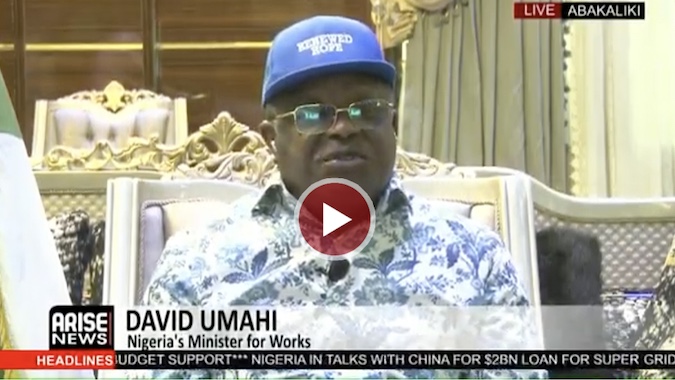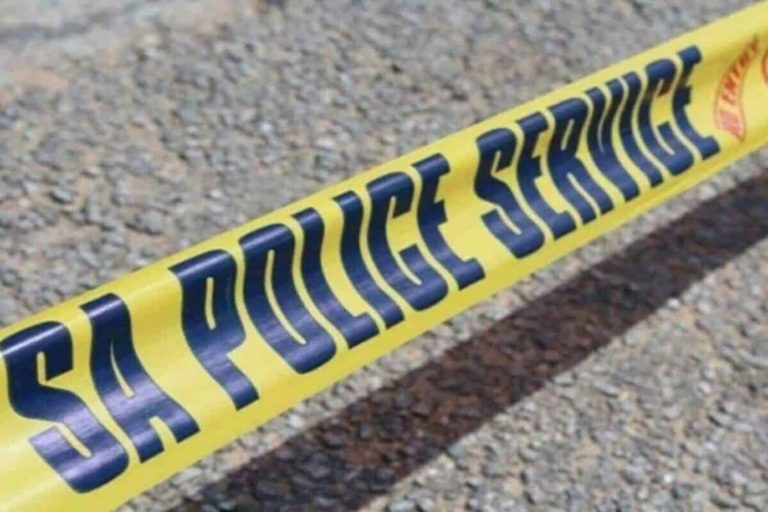
Nigeria’s Minister of Works, David Umahi, has announced significant progress on the Lagos-Calabar Coastal Highway, revealing that work is ongoing simultaneously across five states — Lagos, Ogun, Ondo, Akwa Ibom, and Cross River.
Speaking during an interview on ARISE News, Umahi stated that the ambitious project, one of the Tinubu administration’s flagship infrastructure drives, is being executed in multiple sections.
“The coastal highway is going on very well. We are in Section 2 now. We’ve opened Section 3 and 3B… Section 4A and 4B are going on at Ogun and also at Ondo,” Umahi disclosed.
The Minister explained that Section II of the project covers Lagos and Ogun States, while Section 3A and 3B span Cross River and Akwa Ibom States, and Section 4A and 4B extend through Ogun and Ondo States.
Umahi said the pace and coordination of work demonstrate President Bola Tinubu’s determination to improve Nigeria’s transport network. “There’s no region in the country today where the President is not constructing or rehabilitating major roads. The President is working decisively,” he said.
He emphasised that the Lagos-Calabar Coastal Highway is being built to world-class standards and designed to endure for decades. “The roads are designed to last between 50 and 100 years. If we had built roads like this before, we wouldn’t be in this mess,” he noted.
Defending the cost and funding structure of the project, Umahi explained that the financing arrangement had attracted international confidence. “The Deutsche Bank put it out to the public, and it was oversubscribed by $100 million because the cost of the coastal highway was seen as very cheap,” he revealed.
He also addressed persistent questions regarding cost per kilometre, saying such comparisons were technically inaccurate.
“This project has not been designed. The soil report is not out. In this kind of project, you are not dealing with a cost per kilometre. You can only talk about an average cost per kilometre because every kilometre differs in cost from another,” Umahi clarified.
On criticism of the project, particularly concerning estate demolitions, the Minister said misinformation was being used to distort facts. “If you decide to stay before the public and damage information because you don’t like one administration or the other, it’s very unfortunate,” he said.
Responding specifically to claims made by Winhomes Estate, Umahi stated: “The woman that is in charge of Winhomes development bought 12 hectares of land from the villagers in 2022 for ₦50 million, not dollars.”
He continued, “She was selling a plot for ₦21 million in 2021, and as of the time we started the construction, she started selling a plot for ₦70 million.”
The minister added that no occupied homes were destroyed without compensation. “They didn’t discover any evidence that one building was put up outside the gatehouse, which we demolished. We valued it and demolished it for ₦19 million,” Umahi said.
He also disclosed his interest in a thorough investigation of the matter. “I had wanted EFCC to come into the case, DSS, police, and even the Interpol. But I have left it to the investors. When they come, they are willing to do that, they will process it,” he explained.
To ensure transparency and accountability, Umahi said the Ministry of Works had opened its operations to public monitoring. “We have a website… so the public can track our work and engineers can also learn from the field operations,” he noted.
He maintained that the coastal highway, when completed, would not only boost connectivity and trade across the southern corridor but also stand as a model for modern infrastructure in Africa.
“The President is very decisive and determined to fix the road infrastructure of this country. Nigerians will see the difference,” Umahi said confidently.
Faridah Abdulkadiri



